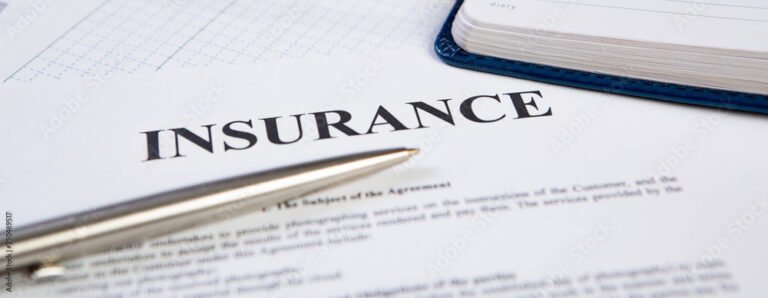
Views: 0
Uderstanding Homeowners Insurance
Homeowners insurance is a type of property insurance that provides financial protection for individuals who own residential property. It covers losses and damages to an individual’s home, as well as the possessions within it. Typically, homeowners insurance encompasses various types of coverage, which can be broadly categorized into three main areas: property protection, liability coverage, and additional living expenses.
Property protection is the cornerstone of homeowners insurance. It typically safeguards the structure of the home against a range of hazards, such as fire, theft, vandalism, and certain natural disasters. This coverage ensures that, in the event of a disaster, homeowners can repair or rebuild their properties without bearing the entire financial burden alone. Moreover, it often extends to personal belongings, including furniture, electronics, and clothing, providing a safety net for homeowners against significant financial loss.
Liability coverage is another crucial component of homeowners insurance. This aspect protects homeowners from legal claims arising from injuries or damages that occur on their property. For instance, if a visitor sustains an injury while on the premises, liability coverage can help cover medical expenses and legal fees, thus preventing potential financial ruin. This protection is essential for safeguarding homeowners against unforeseen incidents that may lead to significant liability claims.
Additionally, homeowners insurance can offer coverage for additional living expenses. In situations where a home becomes uninhabitable due to a covered disaster, this provision helps cover the costs of temporary housing, meals, and other necessary expenses. This aspect underscores the importance of homeowners insurance in maintaining stability and peace of mind during challenging times. Ultimately, homeowners insurance is vital for property owners, ensuring financial security and comprehensive protection against unforeseen challenges.
Is Homeowners Insurance Legally Required?
Homeowners insurance is a critical aspect of property ownership, offering financial protection against various risks. However, it is essential to clarify that homeowners insurance is not universally mandated by law across all states. In most cases, homeowners are not legally required to carry homeowners insurance. Instead, the necessity for this type of insurance often arises from specific situations, particularly when financing a home through a mortgage.
Many lending institutions require borrowers to obtain homeowners insurance as a condition of the mortgage agreement. This requirement is primarily designed to protect the lender’s investment in the property; if a covered disaster were to occur, homeowners insurance helps ensure that the structure is repaired or replaced, thereby safeguarding the bank’s collateral. The specific coverage requirements may vary from lender to lender, with some financial institutions stipulating minimum coverage amounts or particular types of protection. Thus, while homeowners insurance may not be legally mandated, it becomes a practical necessity when a mortgage is involved.
Additionally, variations in local laws may influence the insurance landscape. While many states do not have legal requirements for homeowners insurance, they might impose regulations governing the terms and conditions of such policies when insurance is required by a lender. Notably, certain states could enforce specific disclosures or mandates regarding what coverage types must be included in homeowners insurance policies.
It is crucial for homeowners to recognize these nuances and consult with their local insurance advisors or legal professionals to ensure compliance with both lender requirements and any applicable state laws. Understanding these factors can help homeowners make informed decisions regarding their insurance needs and potential obligations. In essence, the legal landscape surrounding homeowners insurance is shaped by a blend of personal choice and specific circumstances dictated by financial institutions and regional regulations.
Consequences of Not Having Homeowners Insurance
Opting not to obtain homeowners insurance can expose homeowners to a myriad of financial vulnerabilities that could have long-lasting repercussions. In the unfortunate event of property damage due to natural disasters, accidents, or theft, homeowners without insurance would face the grim reality of bearing the full cost of repairs or replacements out of pocket. This financial obligation can be overwhelming, particularly for those who may not have sufficient savings set aside for such unexpected expenses.
Additionally, homeowners insurance is designed to protect against loss caused by various calamities, including fire, storm damage, or vandalism. Without this coverage, individuals risk losing not only their personal belongings but also any advancements they may have made in improving their property. The aftermath of such an event can lead to significant financial strain, as repairing or rebuilding a home can run into tens or even hundreds of thousands of dollars.
Equally important is the aspect of legal liability. Homeowners could potentially face liability claims if someone is injured on their property. For example, if a guest trips and falls, the homeowner could be held responsible for medical expenses or other damages incurred by the injured party. Without homeowners insurance, these legal battles can escalate, leading to jury awards or settlements that far exceed the homeowner’s financial resources, ultimately resulting in severe financial hardship.
Moreover, the emotional toll of navigating repairs, legal issues, and financial uncertainties without insurance can be incredibly stressful. The absence of homeowners insurance not only magnifies these risks but also places the homeowner in a position of increased vulnerability. For these reasons, it is advisable for individuals to consider the potential consequences thoroughly and invest in appropriate homeowners insurance coverage to safeguard both their property and financial well-being.
Exploring Alternatives to Homeowners Insurance
Homeowners insurance is widely recognized as an essential safeguard for property owners; however, not every homeowner may find it suitable or necessary for their specific circumstances. Fortunately, there are several alternatives to traditional homeowners insurance that can cater to diverse needs. One viable option is renters insurance, which provides coverage for personal belongings within a rented property. This type of insurance is particularly beneficial for those who do not own the physical structure but still wish to protect their possessions from theft or damage.
Additionally, for homeowners with unique properties, such as historic homes or properties located in disaster-prone areas, specialized insurance products can be explored. These policies may cover specific risks that standard homeowners insurance may not adequately address. For instance, flood insurance or earthquake insurance can be crucial for those residing in areas where such hazards are prevalent. These tailored products can provide peace of mind by addressing the distinct vulnerabilities of specialized properties.
While each alternative has its benefits, they also come with potential drawbacks that warrant careful consideration. For instance, renters insurance typically does not cover the structure itself, resulting in a complete lack of coverage for structural damages. Furthermore, specialized insurance policies often come with higher premiums and may involve more extensive underwriting processes, which can be a barrier for some property owners. Homeowners must weigh these factors by evaluating their specific needs, financial situation, and the level of risk they are comfortable with.
In conclusion, while homeowners insurance is an essential product for many, exploring alternative coverage options can provide homeowners with tailored solutions that address their unique requirements. Assessing these alternatives can lead to informed decisions, ensuring adequate protection for both properties and personal belongings.






